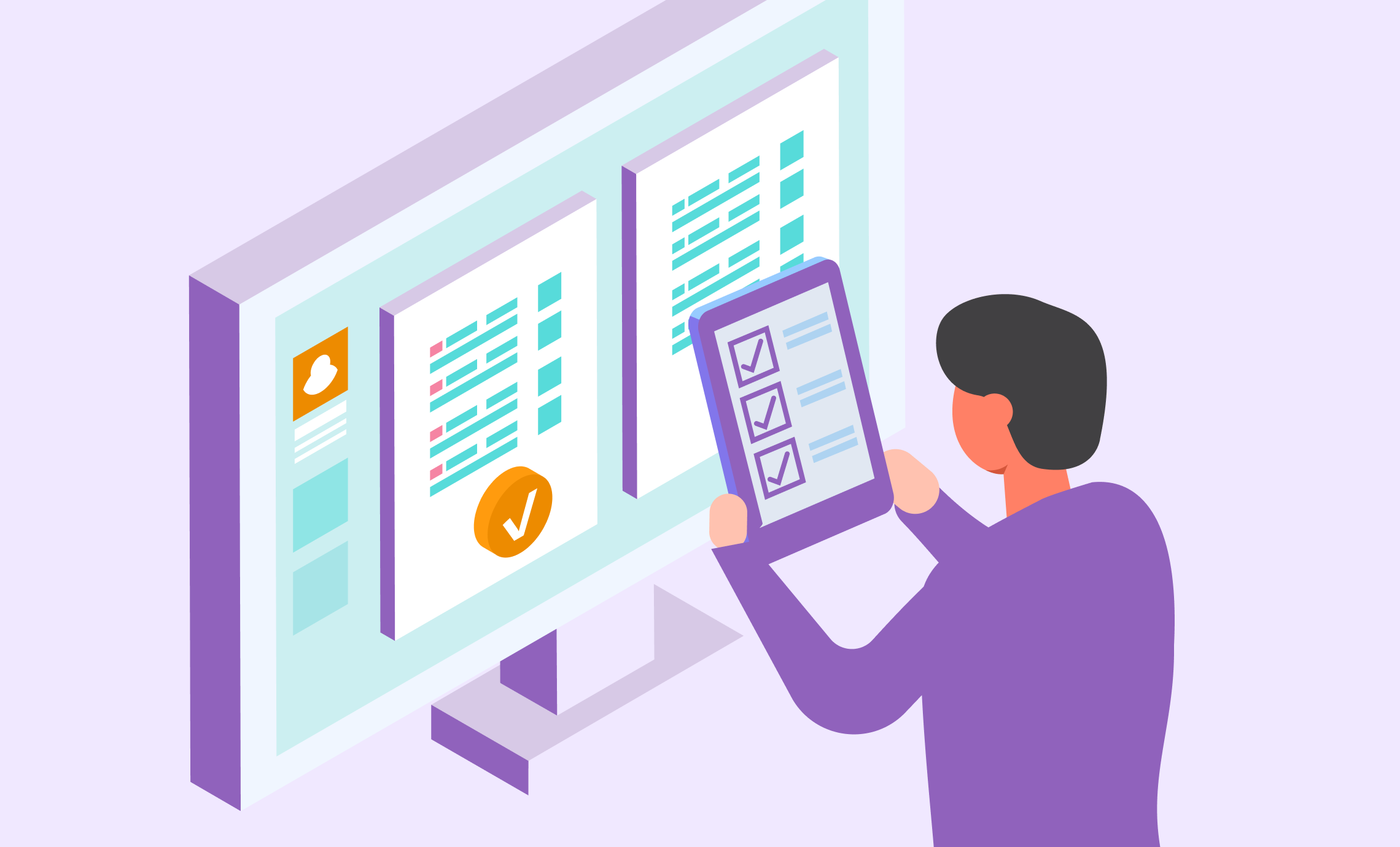Attending conferences is a vital part of professional development and career advancement. These events are crucial networking opportunities to interact with like-minded professionals, industry experts, and thought leaders. Whether you’re a seasoned professional or just starting your journey, a conference can propel you forward as it offers a wealth of learning opportunities within your field. Let’s explore the benefits of attending conferences and how they can influence your professional journey.
Networking opportunities
Networking is one of the fundamental reasons to attend a conference. This activity presents an unparalleled opportunity to connect with professionals within your industry, allowing you to expand your professional circle significantly.
By meeting new people who share similar interests, you not only increase your knowledge base but also open doors for potential collaborations, partnerships, or even future career opportunities. Here’s why networking at conferences is invaluable:
- Diverse connections: Conferences attract a diverse range of professionals, including those from different industries, roles, and career stages. This diversity allows you to connect with individuals you might not encounter in your daily work life. These connections can present you with fresh perspectives and innovative ideas.
- Face-to-face interaction: In today’s digital age, where online communication is prevalent, there’s no substitute for face-to-face interactions. Conferences offer the opportunity to meet people in person, which can help you build stronger and more meaningful connections. Putting a face to your name can leave a lasting impression that sets you apart from others.
- Building lasting relationships: Effective networking goes beyond exchanging business cards. Conferences enable you to nurture relationships over time. By attending multiple events or staying in touch after the meeting, you can transform these initial connections into valuable, long-term relationships that can significantly benefit your career.
So, how can you network effectively at a conference? Start by setting clear networking goals, such as meeting specific industry leaders or making a certain number of new contacts. Be open, approachable, and show genuine interest in others.
Keep in mind that networking is not just about collecting contact information but about fostering relationships. Follow up with your new contacts after the conference, referencing conversations you had or articles they may find helpful.
Skill enhancement and learning
Conferences are about meeting people and providing knowledge hubs that offer unique opportunities for skill development. Here are a few conference features that can contribute to your growth.
Workshops and seminars
Workshops and seminars often form the backbone of conferences by offering attendees hands-on experience and deeper insights into specific topics. By strategically vetting and scheduling event speakers, event organizers are able to offer workshops and seminars that introduce participants to the latest trends, tools, and strategies in their field. When you attend conference workshops and seminars, you gain practical skills and knowledge that you can directly apply to your work, enhancing productivity and proficiency.
Keynote sessions
Keynote sessions are often the highlight of any conference, where renowned industry leaders and innovators share their experiences, insights, and future predictions. Listening to these thought leaders can spark new ideas, inspire you to think differently, and challenge your assumptions. Keynote sessions provide you with the opportunity to learn from those at the pinnacle of your profession, broadening your perspective and enriching your understanding of the industry.
Career insights and trends
Conferences are an excellent source of insights into industry trends and best practices. It’s commonplace for conferences to feature sessions specifically dedicated to discussing emerging trends and the future direction of the industry. These insights offer attendees a glimpse of what’s on the horizon, enabling them to anticipate changes and adapt accordingly.
In addition, panel discussions and case study presentations often highlight industry best practices, providing a valuable opportunity for you to learn from the successes and challenges of others.
Staying updated on industry changes and trends through conferences can significantly impact your career. Being privy to the latest developments allows you to remain competitive and relevant as it helps you foresee opportunities for innovation and growth in your career or business.
Career advancement through knowledge
One of the most direct ways conferences can benefit your career is by equipping you with the knowledge and insights that can lead to advancements by supporting the following.
Improved performance
The knowledge you gain at conferences can enhance your skills, increase your productivity, and improve your job performance. These advantages, in turn, can catch the eye of your supervisors and lead to more significant responsibilities or promotions.
Innovation and problem-solving
Conferences introduce you to different perspectives and approaches. This exposure can stimulate innovation and creative problem-solving in your work. Employers appreciate employees who can think outside the box and bring fresh ideas to the table.
Career transitions
For those looking to switch career paths, conferences can be a valuable resource. The knowledge you acquire at conferences can help you gain the expertise needed to transition into a new field or role by providing a stepping stone to your dream career.
You may be thinking, “Why attend a conference? I can advance my career without that extra work.”
To illustrate the impact of conferences on career advancement, let’s look at real-life examples:
- The PCMA Convening Leaders Conference is the premier destination for business event professionals seeking to ignite inventive thought and absorb wisdom from industry luminaries. Chase Brunson, AffiniPay’s Internal Event Manager, said that everything seemed magnified at the conference, with unmatched networking possibilities and unrivaled celebrations during the week. Most importantly, the educational experiences were stimulating and exhilarating.
- The National Planning Conference (NPC), hosted by the American Planning Association, is a premier gathering that unites thousands of event professionals globally. As shared by Keith Cooke, Global Industry Manager for Planning and Community Development at Esri, they felt privileged to impart their GIS expertise and knowledge to planners nationwide through engaging presentations and learning workshops. Yet, the most rewarding aspect was the exchange of discussions with planners, gaining insights into the issues their communities encounter and understanding their visions and plans for their communities.
- The Experiential Marketing Summit (EMS), conceived and executed by Event Marketer, stands as one of the world’s foremost marketing education conferences, drawing the participation of more than 1,800 marketing professionals across 32 nations. Rhi Taylor of BCD Meetings & Events learned four key takeaways from the conference that contributed to her career advancement: AI is not going anywhere, impactful events create an exchange of energy, it’s important to build brand awareness with memorable, one-of-a-kind experiences, and keeping people interested is the new KPI for events.
The PCMA Convening Leaders Conference could be a significant career catalyst for Chase Brunson and other attendees. By attending, people gained access to the latest strategies and technologies shaping the meetings and events industry, equipping them with the necessary knowledge to stay ahead in an ever-evolving field. The conference also offered a chance to connect with industry leaders and peers, opening avenues for collaborations, mentorships, and even job opportunities. Further, the conference’s robust educational sessions enhanced professional skills and broadened perspectives, benefiting current roles and future career progression.
For Keith Cooke, the NPC provided a platform to share his GIS expertise and learn about the specific challenges various communities face. This insight could be invaluable, contributing to his professional capabilities and enriching his understanding of the sector he operates within. Equally, the opportunity to interact with hundreds of planners not only broadens his professional network but also provides exposure to diverse perspectives and innovative solutions.
For Rhi Taylor, EMS could be an educational experience where she derived key takeaways that could directly impact her career growth. Learning about the enduring relevance of AI, the power of impactful events, the importance of brand awareness, and the evolving KPIs of interest retention offers her a competitive edge in experiential marketing. These insights help her, and other attendees, anticipate industry trends and adapt strategies, accordingly, distinguishing them as cutting-edge professionals.
The benefits of attending conferences are not limited to these individuals. In general, conferences can lead to career development opportunities through exposure to the latest industry trends, networking with peers and industry leaders, and learning from experts in the field.
Professional development
Another one of the many reasons to attend a conference is that it often offers opportunities for attendees to obtain industry-recognized certifications and credentials.
Certifications and credentials are formal recognition of professional expertise in a specific industry or field. Professional bodies typically grant certifications upon successful completion of an examination process, demonstrating that the individual has attained the necessary knowledge and skills in a particular area. Meanwhile, credentials can include qualifications, experiences, or competencies that make an individual qualified for a job or task.
Securing certifications and credentials from industry-recognized conferences can significantly enhance your professional portfolio. The two prove your dedication to continuous learning and mastery of your field. Continuing education refers to pursuing additional formal learning experiences past the basic level of education. These opportunities foster lifelong learning and keep professionals up to date with the latest knowledge, skills, and technologies in their respective fields.
The benefits of continuing education are vast. Continuing education promotes career advancement as you gain new skills and knowledge that open doors to new opportunities and higher positions. Participating in continuing education demonstrates a pledge to self-improvement and professional development, which employers highly value. Moreover, continuing education equips professionals to adapt to rapidly evolving industries, ensuring their expertise remains relevant and valuable.
Certifications and credentials give you a competitive edge in the job market. They tangibly validate your skills and knowledge, making you a more attractive candidate for job opportunities or promotions. Lastly, certifications and credentials can increase your earning potential.
Leadership opportunities
Conference involvement often paves the way to leadership positions, providing a platform to showcase your expertise and dedication to your field. On the one hand, volunteering at these events is a fantastic way to demonstrate your passion for the industry and your ability to take initiative. You may take on roles like moderator or workshop facilitator, which allow you to interact with leaders in your field.
On the other hand, presenting at conferences allows you to display your knowledge and skills to a large, diverse audience. The responsibility places you in the spotlight, providing a stage to share innovative ideas research results, or unpack case studies. This recognition can often catapult your professional reputation, positioning you as a thought leader in your area of expertise.
Exposure and visibility
Attending and participating in conferences can significantly increase your professional visibility. When you present at a conference, you’re not just sharing your ideas with the immediate audience in the room. You bring your insights, experience, and research to the attention of a much larger, often global, professional community. This exposure can attract the attention of industry leaders, potential employers, or collaborators looking for expertise like yours.
Moreover, presenting or participating in a conference sends a strong signal about your dedication to your field. It showcases your willingness to stay abreast of industry trends, contribute to the knowledge base, and engage in professional development.
Your active participation and contribution to conferences can position you as an expert in your field, enhancing your credibility among peers and superiors. It can also open the door to new opportunities. You may receive invitations to speak at future events, collaborate on projects, or even take on leadership roles within your industry.
Leveraging event management expertise
Attending conferences is not just about being physically present — it’s about actively engaging, learning, and seizing opportunities. Expo Logic’s expertise in event management plays a pivotal role in delivering professionally organized conferences that significantly enhance the attendee’s experience. We believe that the quality of a conference is mirrored in its organization and execution, so we strive for perfection in every detail.
As a one-stop solution for all live event technology requirements, Expo Logic delivers a suite of event tech offerings crafted to streamline the fundamental organization of your event. Our comprehensive solutions encompass everything from registration, on-site badge printing, and lead retrieval to floor plan management and exhibitor management, easing the burden for event administrators and planners.



